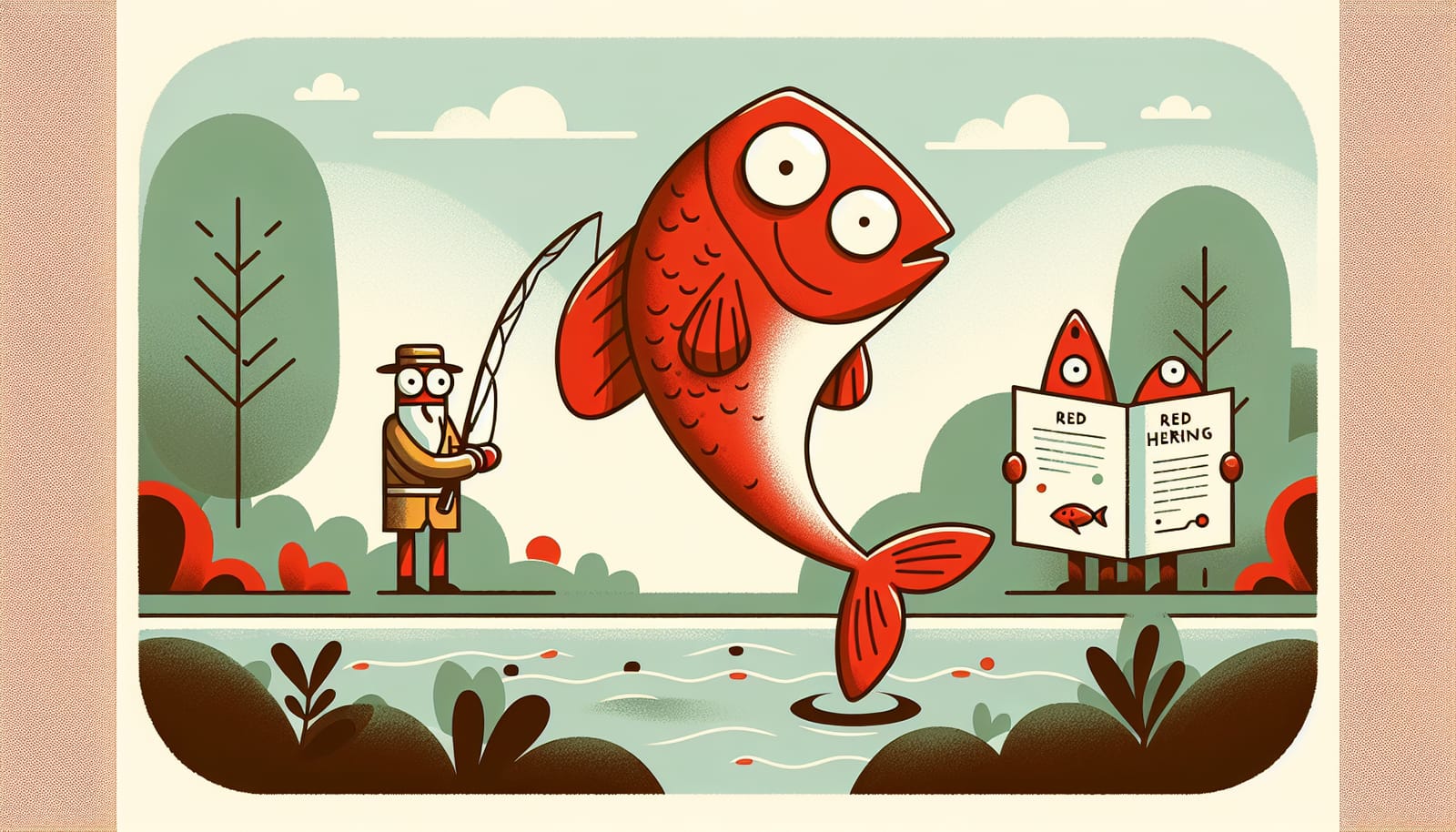When you hear the phrase "a red herring," what comes to mind? Perhaps a sense of confusion or a notion of something that leads you off track? You're not alone! This expression has made its way into our everyday language, often used to describe a distraction or a misleading clue in discussions, investigations, or arguments. But have you ever wondered where this peculiar phrase originated? Join me as we dive into the fishy history of "a red herring"!
The Fishy Tale Begins
The term "red herring" actually refers to a type of fish. More specifically, it denotes a herring that has been cured in brine and then smoked, giving it a distinct reddish color. Historically, this fish was used in various ways, from food preparation to training hunting dogs.
In the 1800s, smoked herring became a common staple in Britain. Fishermen and families alike would enjoy the strong, pungent flavor of this fish. It was an affordable source of protein and could be stored for long periods. However, its strong odor also made it a perfect tool in training dogs. Trainers would drag the fish across a trail to teach their pups to follow scents. This is where things start to get interesting!
A Misleading Trail
As the story goes, a trainer would use a red herring to mislead the dogs into thinking they were following the scent of a quarry. The strong smell of the herring would distract them, leading them off the trail and away from their intended target. This practice illustrates how something seemingly innocuous could serve as a diversion. Thus, the term "red herring" evolved from its literal meaning into a metaphorical phrase for distractions or false leads in arguments and discussions.
The first recorded use of the term in a figurative sense dates back to the early 19th century. In 1807, the English writer William Cobbett used it in his writings when referring to political arguments. He noted how certain topics were employed to divert attention from more pressing issues. The term gained traction in literary circles, particularly in detective novels, where authors utilized red herrings as plot devices to mislead readers and heighten suspense.
The Red Herring in Popular Culture
In literature and media, the red herring is a beloved plot twist. From classic mystery novels to modern television shows, writers often use this technique to keep audiences guessing. Agatha Christie, a master of suspense, often employed red herrings in her detective stories. Readers would be led down a winding path of clues, only to discover that what they thought was significant was merely a distraction.
Notable examples include the famous character Hercule Poirot, who often encounters red herrings throughout his investigations. The term has also crossed over into other genres, from thrillers to romantic comedies, where characters might misinterpret situations, leading to confusion and comedic misunderstandings.
The Red Herring in Everyday Life
But red herrings don't just live in the realm of fiction! In our daily lives, we often encounter situations where distractions veer us off course. Consider a heated debate over a controversial topic. Instead of addressing the main issue at hand, someone might introduce an unrelated point—a classic red herring!
For instance, during discussions about environmental policies, one might bring up unrelated topics, like the cost of coffee production. While both topics are important, diverting attention can lead to confusion and derail the conversation. Recognizing these distractions can help us stay focused on the matter at hand.
The Importance of Critical Thinking
Understanding the concept of a red herring is crucial for effective communication. By recognizing when a diversion is occurring, we can sharpen our critical thinking skills and maintain clarity in our discussions. It encourages us to dig deeper into subjects, seek the truth, and not get sidetracked by irrelevant information.
In an age where information is abundant and often conflicting, the ability to discern between pertinent details and red herrings is more valuable than ever. This skill not only applies to debates but also to everyday decision-making, be it in politics, business, or personal relationships.
Conclusion: Reel in the Truth
So, the next time you hear someone mention a "red herring," you'll know that it's not just about fish or a casual distraction. It’s a term steeped in history, representing the art of misdirection and the importance of staying focused on the truth. Whether you’re navigating a complex argument or simply enjoying a good mystery novel, keep an eye out for those pesky red herrings that might lead you astray.
The next time you find yourself off course, remember the fishy origins of this phrase and remind yourself to reel in the truth. As we continue to explore language and its quirky expressions, who knows what other fascinating stories await us?
